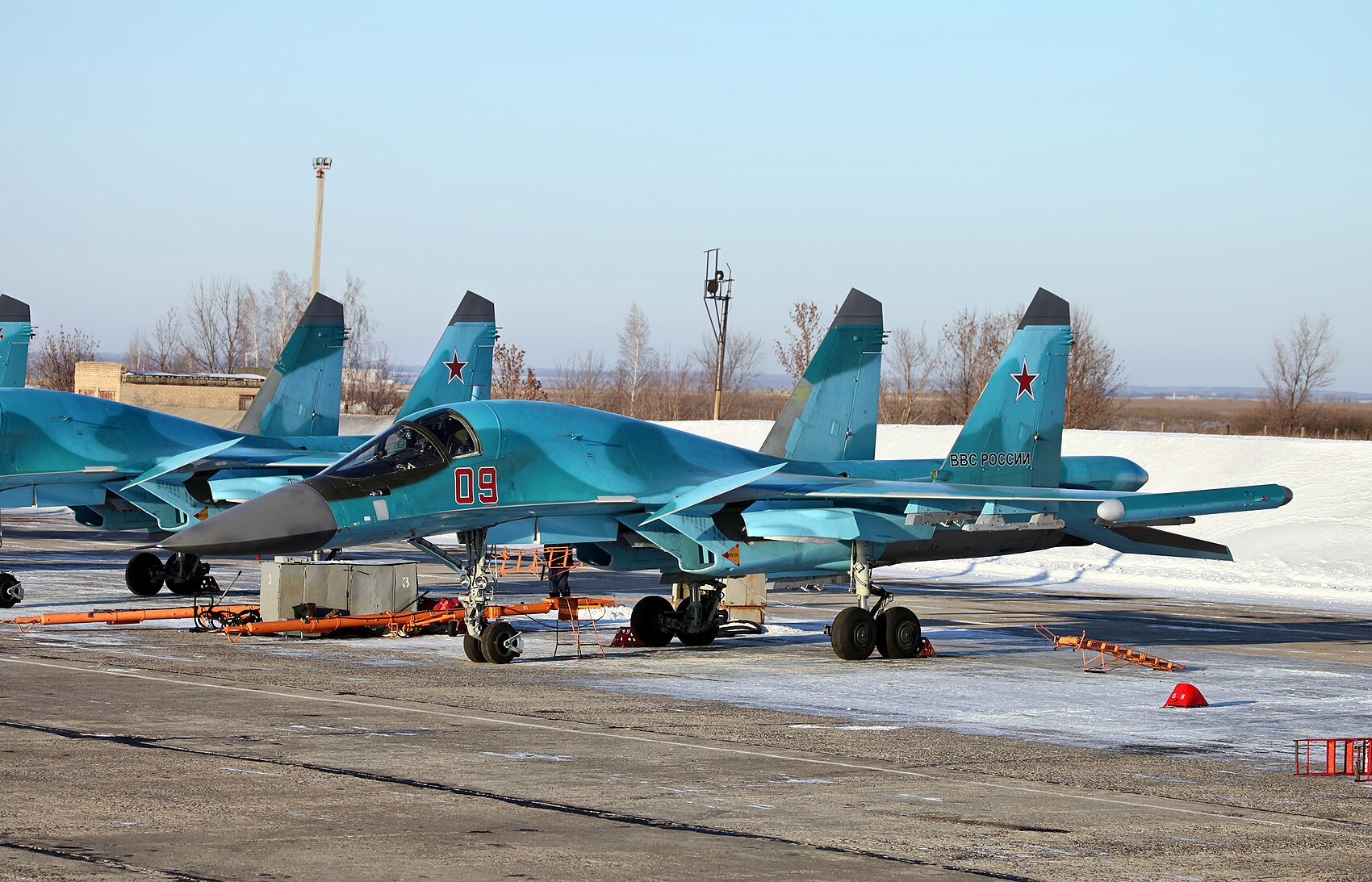Khibiny (electronic countermeasures system)
This article needs additional citations for verification. (May 2015) |
Khibiny (L-175V) (Хибины) (Л-175В) is Soviet / Russian aircraft electronic countermeasures (ECM) system. The name refers to Khibiny Mountains.
The system is designed for radio direction-finding and probing signal source irradiation allowing it to distort reflected signal parameters. This helps to

- Delay aircraft detection;
- Mask the true subject against false reflections;
- Cause range finding difficulties, namely in speed and angular positions;
- Degrading Maintenance Mode TWS when scanning antenna beam radar;
- Increase the time and difficulty of capturing an object during real-time active scanning.
History[edit]
The first work related to the creation ECM "Khibiny" began in the Kaluga Research Institute of Radio Engineering; (Russian: Калужский научно-исследовательский радиотехнический институт) (КНИРТИ)) in 1977. The plan was to create a unified set of electronic countermeasures for all the armed forces, where the tasks for KNIRTI was to develop SIGINT blocks of equipment "Proran" and radio jammer (RJ) "Regatta", which was successfully completed with protected of scientific research in 1980.[1]
In 1982 KNIRTI was entrusted with research and development activities, first with "Proran" and "Regatta", and after an ECM as a whole, which includes many developments on related topics (including the use of accumulated experience in the development of RJ " Sorption ", which was planned to be installed on the Su-27 ). When started research and development with new ECM, later named "Khibiny", it was intended to unite all the units, ensuring that they work closely with the Jets avionics.[1]
The first samples of "Khibiny" were far from ideal as to their weight and size parameters were not suitable for installation on the aircraft. To solve this problem KNIRTI collaborated closely with Sukhoi, working under the direction of Rollan G. Martirosov. Collaborate on a plane integrated ECM (received code "product L-175V") bore little resemblance to the conventional practice in such cases. Typically, the manufacturer of equipment issues to aircraft design bureau specification for the placement of products that represent a complete set of design documents and makes recommendations on placement of its parts with the restrictions on the length of the connections between them. In this case, the equipment "Khibiny" was immediately inserted into the design of the aircraft under development. As a result of close co-operation by the end of the 1980s the first stage of R&D was completed.[1] March 18, 2014 was adopted the fighter-bomber Su-34, equipped with electronic countermeasures complex L-175V "Khibiny".[2] Upgraded Khibiny EW complexes join air units in course of modernization.[3] According to TASS, the "Khibiny" complex will be further modernized based on combat results of Su-34 front-line bombers during their combat deployment in the War in Ukraine.[4][5]
On 12 September 2022, Ukrainian forces claimed to have recovered a RTU 518-PSM jamming pod which is a part of the Khibiny-U system. It was found in the wreckage of the Su-30M near Izyum. [6]
References[edit]
- ^ a b c Топорков, Никита Валентинович (2012). "55. Мы не боялись быть первыми (We were not afraid to be the first)". "Хибины" - автоматизированный комплекс защиты самолетов ("Khibiny" - automated complex aircraft protection). Kaluga: Kaluga Research Institute of Radio Engineering. pp. 136–141.
- ^ "КРЭТ - Концерн Радиоэлектронные Технологии".
- ^ "ЦАМТО / Новости / В авиационные части продолжают поступать усовершенствованные комплексы РЭБ «Хибины"".
- ^ "Источник в ОПК: комплекс РЭБ "Хибины" для Су-34 доработают с учетом применения на Украине". TASS. 23 May 2022.
- ^ "The Ministry of Defense has decided to modernize the Khibiny electronic warfare system based on the results of the use of Su-34 front-line bombers in its own in Ukraine". vpk.name. 24 May 2022.
- ^ Joseph Trevithick (2022-09-12). "Ukraine Just Captured One Of Russia's Most Capable Aerial Electronic Warfare Pods". Retrieved 2022-09-13.

